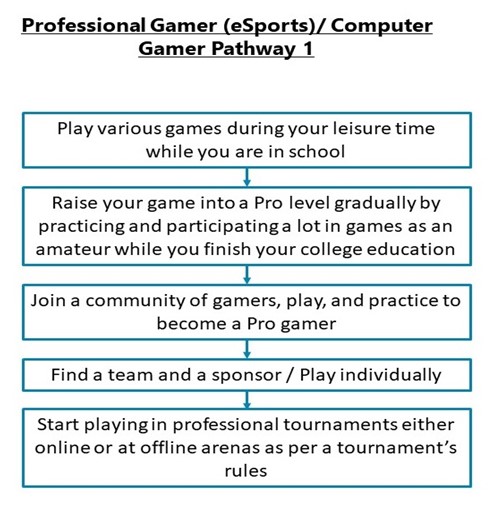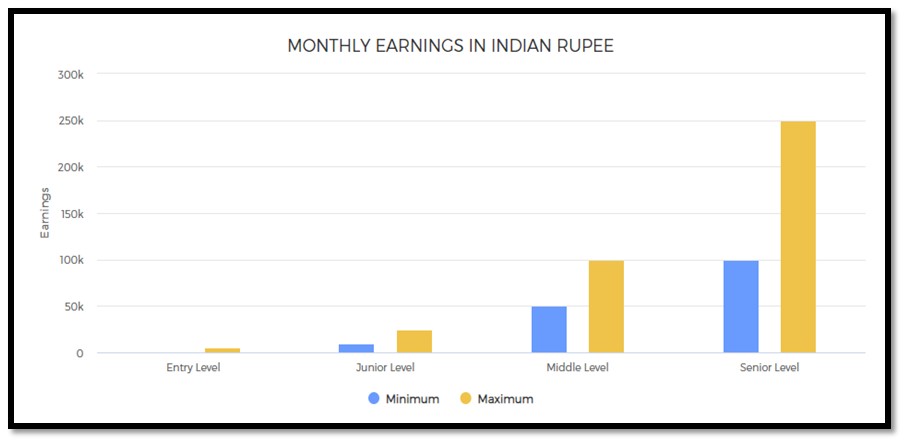Professional Gamer (eSports) / Computer Gamer
Entry Level Qualification
12
Career Fields
Sports & Fitness
For Specially Abled


Career Entrance Exam
About Career
PARTICULARS | DESCRIPTION |
Name | Professional Gamer (eSports) / Computer Gamer |
Purpose | Competing in Regional & International Events |
Career Field | Sports & Fitness |
Required Entrance Exam | No Entrance Exam |
Average Salary | 1000 - 3000000 Rs. Per Year |
Companies For You | Egamers Arena, World Cyber Arena, Game Sync & Many More |
Who is Eligible | Any One |
1. Professional Gamers play online live video games on the internet which are typically multiplayer games. Some games could be played offline too. In many cases, a professional online or offline video game is played in a team. A Professional Gamer team up with others and play online or offline video game competitions or tournaments which are organised by various organisations and esports associations in the world such as the International Esports Federation (IESF).
2. Even India has its own esports federation called ESFI (Esports Federation of India) which is a member of the International Esports Federation and Asian Electronic Sports Federation. Many professional esports tournaments are streamed live on Twitch, the online live video game streaming platform and even some tournaments are broadcast on television channels.
Major genres of esports games
1. Depending on your interest, you may choose to become a professional in a given genre of video game such as MOBA (Multiplayer Online Battle Arena), Online card games (such as poker and blackjack), FPS (First Person Shooter), DCCG (Digital Collectible Card Games), Battel Royal Games, RTS (Real Time Strategy Games), etc.
2. MOBA games are played between teams where each team’s objective is to destroy the opposing team virtual battle structures (enemy base) and defeat each player of the opposing team. The most popular game in this genre is Dota 2 developed by Valve Corporation. Many worldwide tournaments are held for Dota 2 every year where professional gamers participate. These tournaments have millions of dollars of prize money.
3. FPS games are basically combat games played with virtual guns and ammunitions. A FPS game is played from the first person’s eye, or through the eyes of the protagonist. So, here, when you play, you are the protagonist. Half Life 2 and Counter Strike: Global Offensive developed by Valve Corporation, Rainbow Six Siege developed by Ubisoft Montreal, Over watch developed by Blizzard Entertainment, and Titanfall 2 developed by Respawn Entertainment are few of the popular FPS games.
4. Battle Royal games are online multiplayer games played in a virtual battle arena where you or your team has to survive and eliminate all opponents. In these games, the winner is the last person or team surviving. The most popular in this genre is PUBG (PlayerUnknown’s Battlegrounds). PUBG is an online multiplayer game developed and published by PUBG Corporation.
Esports tournaments
1. Most of the esports tournaments are organised as physical events where players take part in the games at an arena with live audience. Many big esports tournaments are streamed live on Twitch and also broadcast on television. Some of the big esports tournaments worldwide are World Cyber Games (it is also known as Esports Olympics), Electronic Sports World Cup in France, World e-Sports Games in Hangzhou, China, eGames (a tournament between countries), International Esports Federation (IESF) World tournament, Valve Corporation’s annual Dota 2 tournament, Battle.net World Championship Series for games like StarCraft II and World of Warcraft, Call of Duty World League, e-XTREMESLAND (Asian tournament for Counter Strike: Global Offensive game), etc.
2. In India, you can participate in tournaments such as ESL India Premiership, NGS Championship (featuring games like Dota 2, Counter Strike: Global Offensive, FIFA, Rocket League, etc.), PUBG Mobile India Series (for PUBG game), U Cypher (for games like Dota 2, Counter Strike: Global Offensive, Real Cricket, etc.), e-XTREMESLAND (the final is held in China), Ultimate Battle (for various games), and COBX Masters.
What hardware and software do you need to play computer video games professionally?
1. You can play many games on a mobile. But if you want to go professional and make a career in esports, you will need high-end PCs or Laptops, video game consoles, specially designed keyboards, VR (Virtual Reality) devices (in case you play VR games like Arizona Sunshine and Space Fist), headphones, etc. Gaming computers require heavy computing and thus basic computers that perform day to day work cannot provide the power, speed and memory that a computer used for professional gaming can.
2. Some of the latest Gaming Computers are: Razer Blade 15 Advanced Model, MSI GS65 Stealth Thin, MSI GS65 Stealth Thin, Lenovo Legion Y740, Acer Predator Triton 500, MSI GL63 8RC among many others. Most gaming computers are custom-build which reduces product cost and increases upgradability. Typically these computers have Intel Core i7 or above processors, NVIDIA GeForce graphic card, 16 GB RAM, etc.
3. Professional gaming needs specifically designed keyboards, Gaming consoles (such as Nintendo Switch, Xbox One X, PlayStation 4 Pro 1TB Console, Nintendo Wii U, and the Microsoft Xbox 360), and handheld devices that provide ‘gaming on the go’ features like Sony PlayStation Portable and the Nintendo DS series.
Two of the popular games that are being played globally are briefly described as follows:
1. Counter Strike: Global Offensive
This is a multiplayer first-person shooter video game, played all over the world by professional gamers in international tournaments and competitions particularly between professional players, individually or as teams. There are two opposing teams, one is of Terrorists and the other is of counter terrorists. The teams compete in game modes to complete objectives and targets for example: securing a location or finding a spot to plant or defuse a bomb, rescuing hostages or killing the targeted terrorists. The players are rewarded at the end of each round based on their individual performance with the currency developed in-game to spend on more powerful weaponry and ammunitions in the following rounds.
2. League of Legends
League of Legends is a multiplayer online battle arena video game in which the players adopt the role of an unseen “summoner” that controls a champion with distinctive abilities and battle against another team of players or computer-controlled pro gamers. The ultimate goal is to destroy the opposing teams “Nexus” which is a structure that lies at the center of the base. The players get expensive weapons and ammos during the fight and are rewarded by killing other opposing team players and also by defending their own team players.
Key Roles and Responsibilities
As a Computer Gamer your main key roles and responsibilities would be:
1. You would have to stick to the rules and regulations of the games.
2. You would have to make sure that the online gaming platforms are secure and protected from virus and malwares attacks.
3. You would have to pay attention to the fake websites and gaming platforms.
4. You would have to maintain personal integrity.
5. As a computer gamer you should play legitimate games that do not endorse or promote illegal activities on the web.
Career Entry Pathway
Play various games during your leisure time while you are in school – Raise your game into a Pro level gradually by practising and participating a lot in games as an amateur while you finish your college education – Join a community of gamers, play, and practice to become a Pro gamer – Find a team and a sponsor / Play individually – Start playing in professional tournaments either online or at offline arenas as per a tournament’s rules
You don’t really need any education to become a professional gamer. Although we suggest that you finish your school and college education before you turn a Pro Gamer but there is no limit. You can become a Pro before you reach Class 10 in school (in any case, many of the national and international tournaments specify that you have to be at least 18 years of age to participate professionally). But remember that you have to make your parents invest in devices and software for practicing to become an amateur gamer first before attempting to become a Pro. So maybe, many of your parents may advise you to complete college education first. The choice is yours. But it is not very difficult to do both simultaneously if you are very serious about taking professional gaming as a career. In any case, remember that becoming a Pro Gamer is extremely difficult as it is highly competitive and there are many obstacles in your way outside the game. Becoming a part of a community, building a pro-gamer portfolio (consisting of your scores in different games, your winning records, etc.), getting noticed by teams and sponsors - it's a high mountain to climb.
Required Qualification & Competencies
1. To become a Pro Gamer, passion alone is not sufficient to make the cut. Esports are extremely competitive and you need to invest in the right gaming gears to begin with and a lot of hours, every day. You will need perseverance, ability to undertake extreme hard work, focus at your game consistently for very long hours day after day, ability to work in a team (if you play a team game), ability to become a part of the gaming community, and so on.
2. You need hours of practice, often 12 to 14 hours of practice to be able to win tournaments and make big money. Professional gaming need extreme concentration and mental abilities. Not everyone can become a professional gamer even if he / she likes to play video games. Video games and professional gaming are two different worlds. It’s very tough, although never impossible, to make your mark in the professional world of gaming.
3. Whether you want to win tournaments and championships or just have fun while improving your skills, there are certain requirements and unique set of skills that need to be acquired in order to be a part of competitions.
4. First, you need to establish yourself as a well-rounded gamer who can take on the competition in any kind of arena. For this you need to practice playing for long hours at a stretch. Some games are only available for one gaming platform for which you will have to invest in specific gaming accessories. You have to hone your skills by playing as an amateur first for 3-5 years.
5. You also need to pay close attention to top players and their strategies, research, read and watch videos on gaming tricks, game mechanics (meaning understanding how the game progresses, what challengs come in what sequence, etc.), and strategies. With hours of practice and research (this might take a year or two in this process), you may finally be ready to compete in national and international championships and leagues. Remember that from the day you start practising to the day when you become a Pro Gamer in a tournament may take long years, maybe 2-4 years.
6. Joining a community of gamers is very important. You may do better by joining a team (depending on the game you want to play). This is an obstacle here as joining a team doesn't depend on your desire but actually a team has to recruit you. You have to compete in online competitions, be a part of various tournaments, and then attempt to sponsorships. But in most cases, all these will depend upon whether you are being scouted by a team and the team makes an offer to you to join.
MINIMUM EDUCATION REQUIRED | MAXIMUM EDUCATION REQUIRED |
Under Secondary Certificate Programs for which the minimum eligibility is a pass in any class below class X. | Post-Secondary Certificate / Diploma Programs for which the minimum eligibility is a pass in class X. |
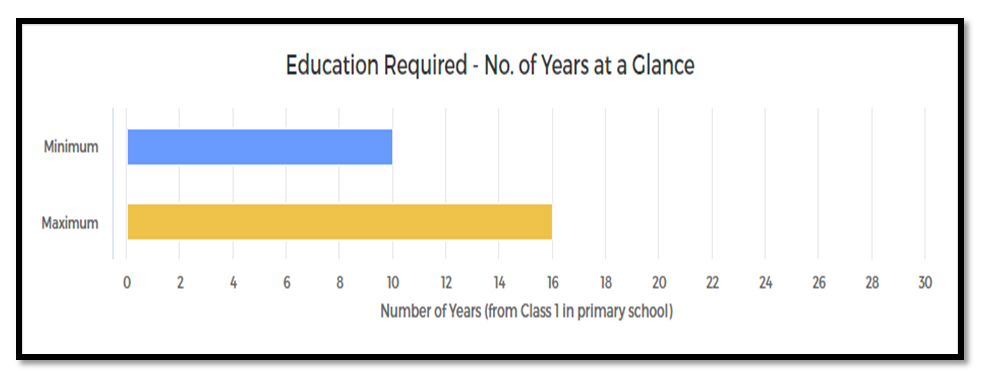
Competencies Required
Interests
1. Realistic: You should have interests for Realistic Occupations. Realistic occupations involve more practical and hands-on activities than paperwork or office work. Realistic occupations often involve physical activities for getting things done using various tools and equipment.
2. Investigative:You should have interests for Investigative Occupations. Investigative occupations involve working with ideas and quite a lot of thinking, often abstract or conceptual thinking. These involve learning about facts and figures; involve use of data analysis, assessment of situations, decision making and problem solving.
3. Enterprising:You should have interests for Enterprising Occupations. Enterprising occupations involve taking initiatives, initiating actions, and planning to achieve goals, often business goals. These involve gathering resources and leading people to get things done. These require decision making, risk taking and action orientation.
Abilities
1. Abstract Reasoning: The ability to understand ideas which are not expressed in words or numbers; the ability to understand concepts which are not clearly expressed verbally or otherwise.
2. Deductive Reasoning: The ability to apply general rules and common logic to specific problems to produce answers that are logical and make sense. For example, understanding the reasons behind an event or a situation using general rules and common logic.
3. Category Flexibility: The ability to generate or use different sets of rules for combining or grouping things in different ways.
4. Flexibility of Closure: The ability to identify or detect a pattern (a figure, object, word, or sound) that is hidden among other distracting materials.
5. Fluency of Ideas: The ability to come up with a number of ideas about a topic (the number of ideas is important, not their quality, correctness, or creativity).
6. Inductive Reasoning: The ability to combine pieces of information from various sources, concepts, and theories to form general rules or conclusions. For example, analysing various events or situations to come out with a set of rules or conclusions.
7. Information Ordering: The ability to arrange things or actions in a certain order or pattern according to a specific rule or set of rules (e.g., patterns of numbers, letters, words, pictures, mathematical operations).
8. Memorization:The ability to remember information such as words, numbers, pictures, and procedures.
9. Mental Stamina: The ability to sustain prolonged mental effort.
10. Perceptual Speed: The ability to quickly and accurately compare similarities and differences among sets of letters, numbers, objects, pictures, or patterns. The things to be compared may be presented at the same time or one after the other. This ability also includes comparing a presented object with a remembered object.
11. Peripheral Vision: The ability to see objects or movement of objects to one's side when the eyes are looking ahead.
12. Physical Stamina: The ability to exert yourself physically over long periods of time without getting winded or out of breath.
13. Selective Attention: The ability to concentrate on a task over a long period of time without being distracted.
14. Speed of Closure: The ability to quickly make sense of, combine, and organize information into meaningful patterns.
15. Visualization: The ability to imagine how something will look after it is moved around or when its parts are moved or rearranged.
Knowledge
1. Knowledge about computer video games: Knowledge about the game you want to play.
Skills
1. Active Learning: Focused and continuous learning from various sources of information, observation and otherwise for application in getting work done.
2. Communication in English: Skills in communicating effectively in writing as well as verbally with others in English language.
3. Critical Thinking: Skills in analysis of complex situations, using of logic and reasoning to understand the situations and take appropriate actions or make interpretations and inferences.
4. Coordination: Skills in working together with other people to get things done.
5. Judgment and Decision Making: Skills in considering pros and cons of various decision alternatives; considering costs and benefits; taking appropriate and suitable decisions.
6. Problem Solving: Skills in analysis and understanding of problems, evaluating various options to solve the problems and using the best option to solve the problems.
7. Technical: Skills in using various technologies and technical methods to get things done or solve problems.
8. Time Management: Skills in prioritizing work, managing time effectively.
9. Troubleshooting: Skills in determining causes of operating errors and deciding what to do about it.
Personality
1. You are somewhat organised in your day-to-day life and activities.
2. You are somewhat careful about your actions and behavior.
3. You are somewhat disciplined in your action and behavior.
4. You remain calm in difficult situations sometimes but some other times you are anxious.
5. You prefer to experience new things and have new experiences sometimes.
6. You act independently sometimes but do not do so in some other times.
7. You are friendly and outgoing sometimes, but not always. You prefer company of people sometimes but not always.
8. You are always practical or in most situations.
Career - Job Opportunities & Profiles
1. Along with your education, you should start playing computer games initially as an amateur. After years of practicing in competitions and leagues, you may get an opportunity to start playing professional games. As an amateur player you can practice playing games online or on live streaming channels. You can become a part of gaming teams or play individually. But the obstacle here is that you do not choose a team to join. It's not easy at all. A team has to find you and recruit you. For this, you have to join communities and make your presence felt in amateur competitions and build a portfolio (meaning your scores in the games you play, your winning records, etc.). You can only hope that a team may notice you and make an offer.
2. You may find various online start-ups that provide young gamers a platform to experience the world of gaming.
3. Some of the topo nline platforms are: Adda52, Poker-Baazi, Spartan Poker, Poker stars, egamers Arena, World Cyber Arena, Game Sync, Contender Esports, etc.


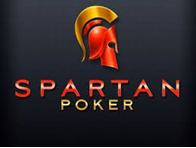
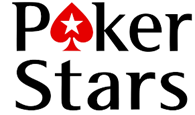
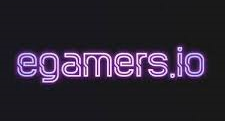
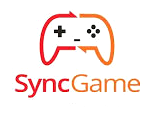

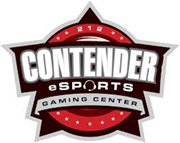
4. Some of the top Indian boot camps and organisations are: Team Brutality, Roar, Beyond Infinity, Gamers for Life (G4L), etc.


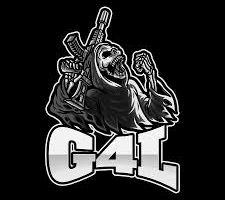
5. So what's the way intobecoming a Pro Gamer? Nothing. Play. Play. And play. Build a good portfolio. Make gaming community and sponsoringorganisations notice you. Without that, you may not be able to earn enough money and take up gaming as a full time career.
Specialisation Tracks In This Career
1. Professional Gamer - Multiplayer Online Battle Arena (MOBA)
The Players in Multiplayer Online Battle Arena are a part of a team which competes against another team of players. The players have to destroy the opposing team’s main structure with the help of frequently spawning characters that are controlled by each player. The most famous MOBA games that are widely played in esports championships and tournaments are: Defence of the Ancients (Dota), League of Legends, Demigod, Monday Night Combat, Guardian of Middle Earth, etc.
2. Professional Gamer - First Person Shooter (FPS)
First Person Shooter players play weapon-based combat from a first-person perspective. These games are three-dimensional shooter game and unlike third-person shooters, the players in this game see through the character they are controlling. The most famous games that are played in esports championships and tournaments are: Half Life 2, Counter Strike: Global Offensive Call of Duty, Rainbow Six Siege, 007 Legends, 3D Monster Chase, 007 Quantum of Solace, etc.
3. Professional Gamer - Digital Collectible Card Games (DCCG)
Digital Collectible card games are strategy card games depicting anything ranging from fantasy or science fiction genres, horror themes, educational games or skilled based card games. Digital Card games are computerized versions of traditional card games. Examples of card games which are skill based are Poker, Blackjack, Bridge, etc. Other Digital Collectible card games popularly played in esports are: Hearthstone, World of Warcraft, Vampire: The eternal struggle, etc.
4. Professional Gamer - Battle Royal Games
Battle Royal Games are online multiplayer video games that involve dozens to a hundred players. The players start with minimum equipment and then have to eliminate other opponents the one that remains alive in the end is declared a winner. The players are given only one life and are not allowed to respawn. Some of the Battle Royal Games are: PlayerUnknown's Battlegrounds (PUBG), APEX Legends, Z1 Battle Royale, Fortnite Battle Royale, etc.
5. Professional Gamer - Real-time Strategy (RTS) Games
In Real-Time Strategy games, the players’ position and structures are under their control to secure areas of the map/or destroy other opponents assets. The tasks in these games are challenging and complex; therefore more advanced user-interfaces are tackling the challenges put by these kinds of games. Some of the RTS examples are: War of Nerves!, Cosmic Conquest, Cytron Masters, Legionnaire, etc.
Career Growth
It may take many years to become a pro gamer after which you can participate in international tournaments. You can take part in professional esports national and international tournaments and leagues. Participating in international professional tournaments can provide more opportunities to play with professional players. Some of the esports leagues are Overwatch League, Rocket League Championship Series, and Halo Championship Series. Some of the esports Tournaments are The League of Legends World Championship Series (LCS), Dota 2, The International, and League of Legends World Championship among many others.
Salary Offered
1. Professional gamers’ or Computer gamers’ source of income depends on several factors. They usually have many sources through which they earn money. Initially as an amateur player you may have to invest money prior to being able to play as a pro gamer. In games like Poker you need to put in buy-in money before playing the game although the rewards and earnings are much more than the amount invested (provided you are winning).
2. In Esports, players make money through sponsorships, prizes, salaries, and sharing of streaming revenue. A team may pay you salaries (in case you are really able to reach a level which makes game teams notice you and make an offer - it is extremely difficult to get an offer). After you have built a pro-gamer portfolio and are competing in championships and tournaments, brands that you purchase for your gaming accessories might want to sponsor you or invest in you via several sponsored tournaments. For example brands like Mt. Dew and Flipkart organize gaming tournaments like Dew Arean, Flipkart Gaming online Championship, IeSC, ROG Masters, and ESL India and the prize pool is around 50 Lakhs-85 Lakhs.
In India:
1. In India as a pro gamer, you first need to submit copies of ID documents and tax account number before you can start playing on online platforms. There are no other barriers before you start earning as a pro gamer (that is, if you are playing as an individual player). Although there are various buy-in amounts for playing a game like Poker once you start playing well and start winning, you can start earning good money. In order to receive bonuses and cash prizes, you need to maintain a good score amongst the players to be able to top the leader board which is updated on a weekly as well as monthly basis.
2. You may earn around Rs.1,000 – Rs. 30,00,000 in a year depending upon which game you are playing and in which national or international tournament you are participating in.
3. At the beginning, you will not make much, say about Rs. 1,000-5,000 a month. But as you increase your level and experience, you can soon start earning about Rs. 10,000 – 25,000 a month or even more. Some pro players (including their prize money and sponsorships, etc.) could be earning about Rs. 50,000-1,00,000 a month on an average in a month. Senior Pro players, depending upon their tournament winning and rankings, may earn about Rs. 1,00,000-2,50,000 or even more a month on an average. If you can really make it happen at the world stage, you will be a millionaire before you turn 30!
4. There’s no fixed per month salary, but once you have maintained a pro-gamer portfolio or managed to top the scoreboard you may open more sources for cash rewards and prizes.
In US:
1. The highest earnings by players under22 years old are $31,212,142.96
2. The highest earnings by players under 18 years old are $2,712,139.14
3. In the US, some topPrizes can reach $100,000 to $ 200,000 for a single victory. Some tournaments offer prize pools that can reach millions of dollars, but this amount is typically divided among the 5 or 6 members of a winning team.
1. Regular salaries - Regular Esports salaries vary from team to team and from player to player. The regular monthly salaries of average pro gamers ranges from $1,000 - $5,000, whereas the highest paid League of Legends players can earn up to $15,000 per month apart from the money that they get from prizes.
2. Sponsors - A big part of a professional gamer income comes from sponsors. Pro gaming tournament sponsors are mainly manufacturers of game peripherals such as mice and headphones (Intel, BenQ) as well as energy drinks (Red Bull, Monster Energy).
3. Streaming - Many Esports pros use online streaming as a way to supplement their pro gamer salary.
Monthly Earnings In Indian Rupee
Entry Level | Junior Level | Mid-Level | Senior Level | ||||
Min Earning | Max Earning | Min Earning | Max Earning | Min Earning | Max Earning | Min Earning | Max Earning |
1000 | 5000 | 10000 | 25000 | 50000 | 100000 | 100000 | 250000 |
1. Entry level: 0 - 2 years of work experience
2. Junior Level: From 1 to 12 years of work experience
3. Mid-Level: From 5 to 20+ years of work experience
4. Senior Level: From 10 to 25+ years of work experience (there could be exceptions in some high-end technical, financial, engineering, creative, management, sports, and other careers; also in the near future, people will reach these levels much faster in many careers and in some careers, these levels will have no meaning as those careers will be completely tech skill driven such as even now, there is almost no level in a Cyber Security Expert’s job)
Work Activities
1. Communicating with team players: Communicating with team players, verbally or otherwise inside online gaming rooms, playing on a real time basis.
2. Computing: Computing using various computer software applications; writing algorithm for various computer and mobile applications; using software applications for high end gaming experience.
3. Analysing and interpreting data and information: Analysis of data and information to find facts, trends, reasons behind situations, etc.; interpretation of data to aid in decision making.
4. Decision making and problem solving: Analysis of data and information; evaluation of alternative decisions and results of decisions; taking the right decisions and solving problems.
5. Getting Information and learning: Observing, hearing, reading, using computers, or otherwise obtaining information and learning from it.
6. Playing a sport or game: Playing individual or team games outdoor or indoor.
7. Using computers: Using computers with high quality game cards; using computer software for various applications in tournaments and competitions.
8. Updating and using relevant knowledge: Keeping updated with the latest knowledge relevant to your fields of work and use of the relevant knowledge in getting things done.
9. Working in a team: Working in a team of people; developing team; maintaining professional relationships among team members.
Future Prospects
1. The future of gaming is exciting although it will be highly competitive and there are many obstacles in the way of becoming a pro gamer. According to the reports by KPMG, the Indian online gaming industry is projected to grow at a CAGR (Compounded Annual Growth Rate) of 22.1 percent and reach Rs.11,880 crore by whereas the global eSports market was valued at nearly 865 million U.S. dollars.
2. The Global eSports market revenue will reach 1.79 billion U.S. dollars. At the pace of 22.3 percent CAGR, the market is expected to generate close to 1.8 billion U.S. dollars. The majority of revenues are from sponsorships, advertising, and the rest from eSports betting, prize pools, tournaments, merchandise and ticket sales. This means that there will be a further increase in the number of online gamers nationally and internationally with an equal number of online viewers/audience as more online streaming platforms like YouTube and Twitch are gaining importance. To all the gaming enthusiasts who want to take their passion for gaming to another level, there’s more to this gaming industry in the upcoming future.
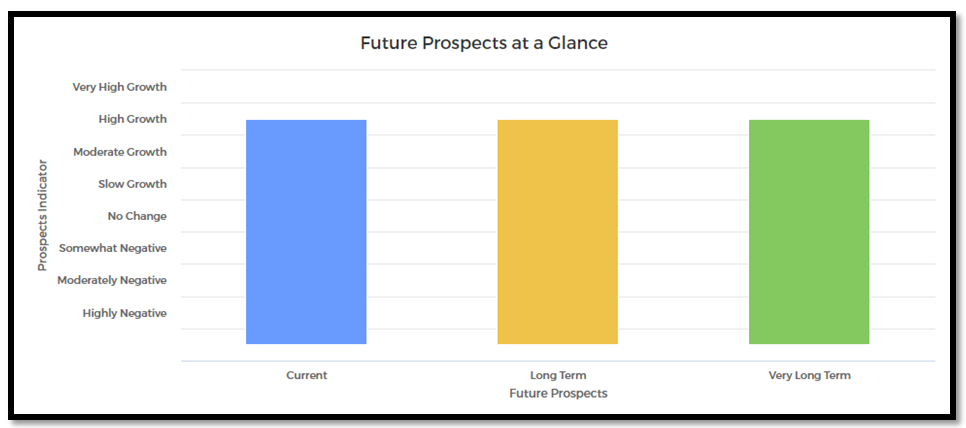
Future Prospects At A Glance
Current (0-1 year) | Long Term (2-5 year) | Very Long Term (6-10 years) |
High Growth | High Growth | High Growth |

